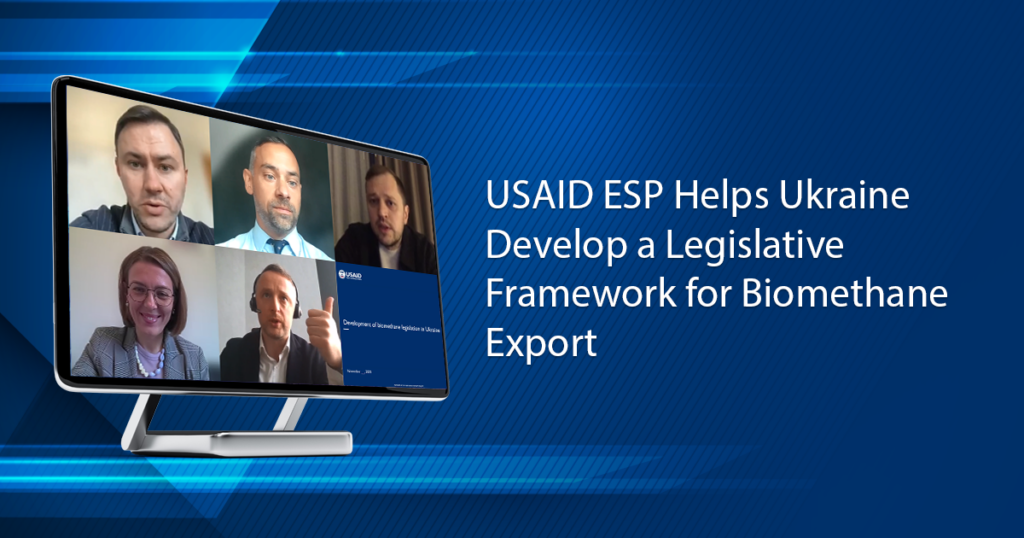Following the commitment to create a favorable environment to advance the biomethane market and facilitate the export of Ukraine’s biomethane to Europe, USAID Energy Security Project (ESP) gathered key stakeholders to present its Biomethane Development Project in Ukraine.
Biomethane holds promise as a sustainable energy source due to its renewable nature and carbon neutrality. Its versatility allows for applications in various sectors, including transportation, heat, electricity generation, and industrial processes.
Justin Goonesinghe, Gas Team Lead of USAID ESP, stated that as Ukraine aims to develop the biomethane industry and to establish exports into the EU, a robust regulatory framework is crucial. “There is political agreement between the EU and Ukraine that biomethane can be produced and exported and there is also political will to cooperate. However, for the initiative to develop, we need to ensure that the correct secondary legislation is in place, and this is where the Energy Security Project is providing active support. We hope that by reviewing and understanding the European biomethane legislation, this project will help Ukrainian stakeholders choose the best way to develop the biomethane market, ensure the right legislative and regulatory model, and enable successful integration with the EU.”

Andrii Zhupanin, Member of Parliament (MP), noted USAID ESP’s valuable contribution to Ukraine’s biomethane industry. The MP mentioned that the Ukrainian Parliament is actively working on biomethane legislation and therefore the project’s input on the legislative aspect is of great importance.
Vitalii Radchenko, representing CMS, that is helping USAID ESP to implement the Biomethane Development Project, mentioned that the project aims to align Ukraine’s biomethane market with European standards and represents an opportunity to facilitate its green energy transition. The analysis benchmarked European legislation on the biomethane market, assessing best practices and current structures. Additionally, Vitalii provided an overview of biomethane regulation in Ukraine and outlined a potential market structure, focusing on developing a regulatory framework that mirrors European standards.
Frank Avedissian, from Bilfinger Tebodin, that is supporting USAID ESP in the Biomethane Development Project, presented key findings from a benchmarking project across five countries, including measures to support the biomethane sector on both the supply and demand sides. The success of the French biomethane market and varying approaches in other countries, such as grid connection compensation and investment incentives were emphasized. Based on this benchmarking study, ESP’s recommendations to Ukrainian producers focused on prioritizing guarantees of origin and sustainability audits as well as studying biomass potential, ensuring infrastructure readiness, and providing investment incentives.
In addition, ESP identified the following key barriers for biomethane export:
- Necessity to lift export ban/legally separate biomethane from natural gas: Addressing this barrier is essential to distinguish biomethane from conventional natural gas, enabling its export and integration into international markets.
- Absence of incentives for biomethane production: Introducing incentives is vital to encourage investment and promote the development of biomethane production facilities in Ukraine.
- Non-adopted National Energy and Climate Plan: The absence of a comprehensive plan hinders coordinated efforts and may slow down the progress of biomethane initiatives.
- Absence of a sustainability list, greenhouse gas emission-saving criteria, that meet EU standards. Establishing clear criteria for sustainability and eligible feedstocks is crucial to ensure the environmental benefits of biomethane production.
Mykola Kolisnyk, Deputy Minister of Energy, thanked the parties for a very informative presentation and emphasized that it contained highly relative research that supports the Ministry’s efforts to study the regulatory framework for biomethane.
